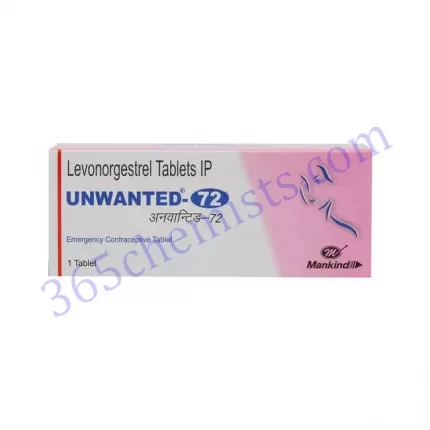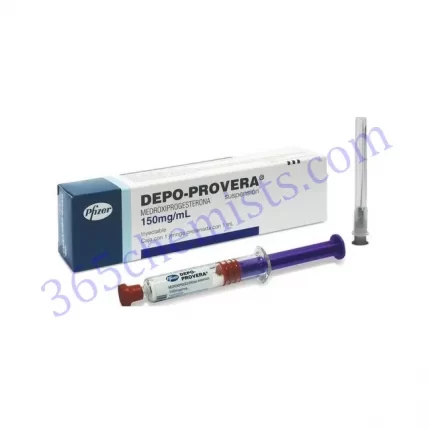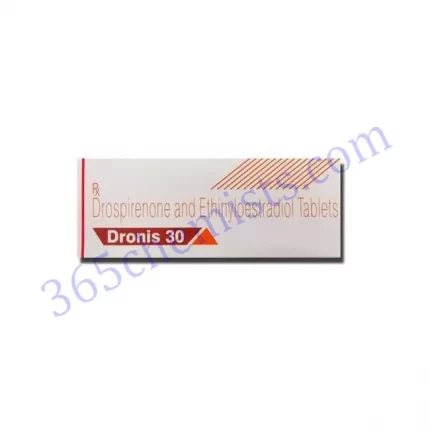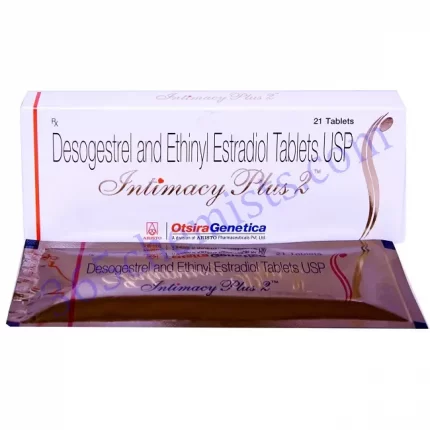Cerazette Tablet (Desogestrel 0.075mg): A Comprehensive Overview
Desogestrel is the active component of Cerazette Tablet, an oral contraceptive. It is a member of the progestogen-only mini-pill subclass of medications. The composition, mechanism of action, advantages, administration, possible side effects, and usage concerns of Tablet are all fully described in this page.Tablet in a dosage of 0.075 mg. The formulation and stability of the medication depend on a number of other inactive chemicals that are also present in the tablet.
Potential negative consequences
Although Cerazette Tablet is often well accepted, some people may experience some negative effects. These negative impacts could consist of:
- Changes in monthly Pattern: Many people who use Tablet report changes in their monthly bleeding patterns. This can involve uncontrollable bleeding, lighter or heavier periods, or no periods at all. These alterations are often transient and could disappear after a few months of use.
- Breast soreness: While taking Cerazette Tablet, some people may suffer breast soreness or enlargement. These signs are typically minor and get better with time.
- Headache: The Cerazette Tablet may cause headaches as a side effect. It is advised to speak with your healthcare professional if you get severe or frequent headaches.
- Mood swings, nausea, acne, weight changes, and a diminished libido are among additional adverse effects that could occur. These negative effects are often minor and short-lived.
For the best advice and support, it’s crucial to address any worries or side effects with your healthcare professional.
Important considerations and safety precautions
- Missed Pills: To maintain Cerazette Tablet’s efficacy, it should be taken consistently at the same time each day. If a dose is missed by more than 12 hours, you should take extra precautions, including barrier methods, for the following two days.
- Drug Interactions: Some drugs, such as specific antibiotics or antiepileptic medications, may interact with Tablet and lessen its effectiveness as a contraceptive. To make sure your medications work with Cerazette Tablet, it’s crucial to let your doctor know what you’re taking.
- Those who have a history of hypersensitivity to desogestrel or any of the tablet’s ingredients should avoid taking Tablet. Additionally, it is not advised for those who have a history of blood clots or liver disease, among other disorders. Before beginning to take Cerazette Tablet, be sure to fully disclose your medical history to your healthcare professional.
Precautions and Considerations
- Drug Interactions: Cerazette Tablet may interact with other drugs and lose some of its effectiveness, including some antibiotics, anticonvulsants, and herbal supplements. To avoid any potential interactions, it is crucial to let your healthcare professional know about all the medications you are taking.
- Tablet has a generally good tolerance, although some people may experience certain negative effects. These symptoms can include dizziness, breast soreness, mood swings, migraines, acne, or libido changes. It is advised to speak with your doctor if any of these adverse effects worsen or persist.
- Medical disorders: People who have specific medical disorders, such as liver disease, unexplained vaginal bleeding, or a history of blood clots, may not be able to take Cerazette Tablet. If you want to know if Cerazette Tablet is right for you, it’s crucial to talk to your doctor about your medical history.
When to Seek Medical Attention
Despite the fact that Cerazette Tablet is generally safe and well-tolerated, there are several circumstances where you should see a doctor:
- Blood Clot Symptoms: If you encounter symptoms of a blood clot, such as excruciating leg pain, chest pain, shortness of breath, or sudden changes in vision, you should seek immediate medical assistance.
- significant stomach Pain: If you experience significant stomach pain, it’s crucial to speak with your doctor as this could be a sign of the uncommon but dangerous illness known as ectopic pregnancy.
- Allergic Reactions: Stop using CerazetteTablet and get emergency medical help if you suffer any symptoms of an allergic response, including rash, itching, swelling, or trouble breathing.
Important Safety Information
- Cerazette Tablets shouldn’t be taken when pregnant. If you find out you’re pregnant while using Cerazette Tablet, stop taking it and talk to your doctor.
- Breast Cancer: If you presently have breast cancer or have a history of the disease, Cerazette Tablet may not be right for you. Before beginning to take Cerazette Tablet, talk to your healthcare practitioner about your medical history.
- Smoking and Age: Cerazette Tablet is not advised for smokers over the age of 35 since it may raise the risk of life-threatening cardiovascular events.
- Protection Against STIs: Although Cerazette Tablet offers effective contraception, it does not offer STI protection. To lower the risk of STIs, barrier devices like condoms are crucial.
Gains and Effectiveness
As a method of birth control, Cerazette Tablet has a number of advantages:
- Highly Effective: Cerazette Tablet is nearly 99% effective at preventing pregnancy when used properly.
- Convenient: For people who prefer an oral contraceptive, it is a convenient alternative because it is taken orally as a single daily pill.
- Friendly to Breastfeeding: Cerazette Tablet is safe for breastfeeding mothers to take because it has no negative effects on the quantity or quality of their milk.
- Non-Hormonal Side Effects: Because Cerazette Tablet only includes progestogen, there is no chance of experiencing non-estrogenic side effects like weight gain, mood swings, or headaches.
Conclusion
For those looking for an effective and practical method of birth control, Cerazette Tablet (Desogestrel 0.075mg) is a progestogen-only oral contraceptive. People can use Cerazette Tablet in a responsible manner if they are aware of its availability, prescription requirements, storage recommendations, critical safety information, and considerations for particular groups. It is crucial to speak with a healthcare practitioner for individualised advice and direction catered to your unique needs and medical background. The safe and effective use of Tablet as a contraceptive choice requires regular follow-up sessions and open discussion with your healthcare professional.












